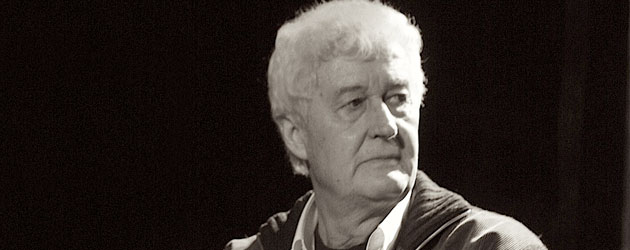DeFlamenco.com
Foto: Paco Manzano
Today, January 30th 2014, the world of flamenco is in mourning for Félix Grande, poet, writer, man of letters and flamenco researcher.
Born in Mérida, province of Badajoz, he moved to Madrid at the age of twenty. Throughout his life he won many awards such as the Adonais Prize for Poetry fifty years ago in 1963, the Guipúzcoa Prize in 1967 and the National Prize for Poetry in 1979. In 2004 he was awarded Spain’s National Prize for Letras. He worked with Luis Rosales for the cultural publication Cuadernos Hispanoamericanos where he remained for two decades.
In 1980 Grande received the National Prize for Flamencology for his best-known flamenco work: “Memoria del Flamenco”. At least one popular phrase of his comes from that text: he refers to Manolo Caracol as “the Caruso of the caves”.
Félix Grande’s close friendship with Paco de Lucía, and the admiration he felt for the guitarist were well-known. In the year 2000 he published the book “Paco de Lucía y Camarón de la Isla”, and would go on to declare on many occasions that the singer José Monge Cruz, “Camarón”, was “the greatest flamenco singer of all time”.
He considered flamenco to be protest music, and highlighted the gypsy involvement in its development. He wrote the verses for “Persecución”, one of the first works that used flamenco for political protest, for Juan Peña “Lebrijano”.
The flamenco community always had a special relationship with this scholarly gentleman who often gave talks or participated as a judge at flamenco contests, among other functions in line with his background.
